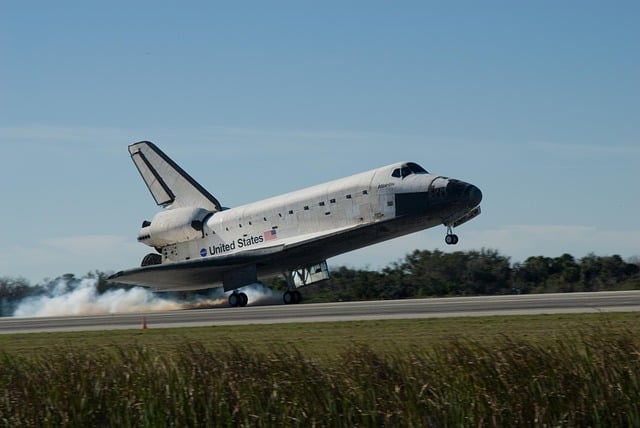To become an aerospace engineer, start by evaluating your interest and skills in STEM fields like space exploration and aircraft design. Build a solid academic foundation with strong math and science performance in high school, focusing on calculus, physics, chemistry, and biology. Develop programming and CAD skills for advanced system design and analysis. Take AP or IB courses to earn college credits early. Engage in STEM projects and internships to gain hands-on experience. Improve writing and communication skills through essays, debates, and peer discussions. Research industry standards and safety practices to understand career expectations. Strategically plan your university application with a focus on strong grades, advanced coursework, and practical experience.
Aspiring aerospace engineers, this is your guide to laying a solid groundwork for a successful degree. Starting from high school, this article equips you with 10 essential tips to prepare for the demanding yet rewarding field of aerospace engineering. We delve into crucial aspects like assessing your interest, strengthening math and science skills, building computer proficiency, exploring relevant courses, gaining practical experience, and mastering key industry standards. By following these steps, you’ll be well on your way to a thriving career in aerospace.
- Assess Your Interest & Aptitude for Aerospace Engineering
- Strengthen Math & Science Foundations in High School
- Build Computer Proficiency: Programming & CAD Software
- Explore Aerospace Courses & Electives in High School
- Gain Hands-On Experience Through Projects or Internships
- Develop Strong Writing & Communication Skills
- Familiarize Yourself with Aerospace Industry Standards
- Prepare for University Admissions & Academic Challenges
Assess Your Interest & Aptitude for Aerospace Engineering

Before diving into your aerospace engineering studies, it’s crucial to assess whether this field aligns with your interests and aptitudes. Aerospace engineering is a complex and demanding discipline that requires a strong foundation in both science and mathematics. If you’ve always been fascinated by space exploration, aircraft design, or the physics behind flight, this could be a rewarding career path for you.
Consider your passion for problem-solving, as engineers often tackle intricate challenges. A natural curiosity about how things work and a willingness to learn advanced concepts are also indicators of a suitable candidate. Reflect on your academic performance in STEM subjects—strong skills in physics, mathematics, and computer programming can significantly aid your journey towards becoming an aerospace engineer.
Strengthen Math & Science Foundations in High School

Aerospace engineering is a field that heavily relies on mathematics and science, making it crucial to build a solid foundation in these subjects during high school. Focus on strengthening your understanding of calculus, physics, chemistry, and biology. These core subjects form the basis for many advanced concepts you’ll encounter in college. Consider taking advanced placement (AP) courses or honors programs in math and science if available, as they can provide valuable preparation and potentially earn you college credits.
Additionally, develop good study habits early on. Practice solving complex problems, learn to break down challenging topics into manageable parts, and familiarize yourself with various learning resources such as textbooks, online tutorials, and educational videos. Building these skills will not only help you excel in high school but also prepare you for the rigorous academic demands of aerospace engineering programs at the university level.
Build Computer Proficiency: Programming & CAD Software

Developing strong computer skills is essential for aerospace engineers, as they frequently use advanced software to design, simulate, and analyze complex systems. Start building your proficiency by learning programming languages like MATLAB or Python, which are widely used in the industry for data analysis and modeling. These languages will empower you to automate tasks, create custom tools, and process large datasets efficiently.
Additionally, become familiar with Computer-Aided Design (CAD) software such as AutoCAD, SolidWorks, or CATIA. Aerospace engineers use these tools to design aircraft components, structural systems, and entire vehicles. Practicing with CAD software early on will help you develop a strong foundation in digital modeling, enabling you to translate your designs into virtual prototypes and perform detailed analyses.
Explore Aerospace Courses & Electives in High School

High school is an excellent time to start exploring your interest in aerospace engineering. Many high schools offer a range of courses that can lay the groundwork for university-level studies. Focus on math and science classes like calculus, physics, and chemistry, as these are essential building blocks for any STEM field. Look for advanced placement (AP) or International Baccalaureate (IB) courses, especially in physics and engineering, which can provide college credit and a head start on your aerospace education.
Additionally, some high schools offer specialized aerospace programs or electives that cover basic aviation concepts, rocket science, and even drone technology. These courses can spark your curiosity, introduce you to key terminology, and give you a practical understanding of the field. Don’t be discouraged if your school doesn’t offer specific aerospace classes; many resources are available online, from educational videos to interactive simulations, to supplement your learning journey.
Gain Hands-On Experience Through Projects or Internships

Gaining practical experience is invaluable for aspiring aerospace engineers. It’s one thing to learn theoretical concepts, but putting them into practice is where true understanding and innovation occur. High school students should look for opportunities to get involved in STEM projects, robotics clubs, or even building their own models. These hands-on experiences can provide a solid foundation for college-level engineering studies.
Internships with aerospace companies or research institutions are another excellent way to gain experience. Many companies offer summer programs for high school students interested in engineering, which can expose them to real-world challenges and industry standards early on. Internships not only offer valuable technical skills but also insights into the day-to-day work of an aerospace engineer, helping students make informed decisions about their future career path.
Develop Strong Writing & Communication Skills

Developing strong writing and communication skills is paramount when pursuing a degree in aerospace engineering. You’ll frequently need to articulate complex technical concepts both verbally and in writing, whether it’s through reports, proposals, or presentations. High school students should focus on improving their essay-writing techniques, learning to structure arguments coherently, and honing their ability to convey ideas clearly. Practice public speaking and join debate clubs to build confidence in presenting information to diverse audiences.
Beyond academic settings, engage in discussions with peers and mentors to refine your ability to explain intricate engineering concepts succinctly. This early investment in communication skills will significantly enhance your learning experience and future career prospects in aerospace engineering, where clear and effective communication is as vital as technical expertise.
Familiarize Yourself with Aerospace Industry Standards

Before diving into your aerospace engineering studies, take time to familiarize yourself with industry standards and practices. This will give you a clear idea of what to expect in your future career. The aerospace industry operates under stringent safety regulations and quality control measures, so understanding these fundamentals is crucial from the outset.
Many resources are available online and through academic institutions to help you grasp these concepts. Start by exploring industry standards set by organizations like NASA or the FAA (Federal Aviation Administration). These standards cover a wide range of topics, including aircraft design, material selection, manufacturing processes, and safety protocols. By gaining a solid understanding of these principles early on, you’ll be better equipped to handle more complex engineering challenges as your studies progress.
Prepare for University Admissions & Academic Challenges

As you prepare for aerospace engineering studies, understanding what lies ahead in university admissions and academic challenges is crucial. The path to securing your spot at a reputable university involves more than just excellent high school grades; it requires strategic planning and demonstrating a strong commitment to the field. Start by researching admission requirements specific to aerospace programs, as they can vary between institutions. This includes exploring standardized test scores (like the SAT or ACT), recommended coursework, and any additional materials such as personal statements or letters of recommendation.
Beyond meeting basic qualifications, prospective aerospace engineers should cultivate a deep curiosity about physics, mathematics, computer science, and mechanics. These subjects form the backbone of your academic journey in aerospace engineering. Building a solid foundation in these areas through advanced high school courses will not only make the transition to university smoother but also prepare you for the rigor of college-level work. Additionally, gaining hands-on experience through projects, internships, or extracurricular activities can set you apart and provide valuable insights into the practical applications of aerospace concepts.
Preparing for a degree in aerospace engineering requires a combination of academic readiness, technical proficiency, and a genuine interest in the field. By following these essential tips, from strengthening math and science foundations to gaining hands-on experience and developing key skills, you’ll be well on your way to success in aerospace studies. Remember that a strong foundation built during high school will empower you to navigate the rigors of university-level coursework and prepare you for a rewarding career in this exciting industry.
